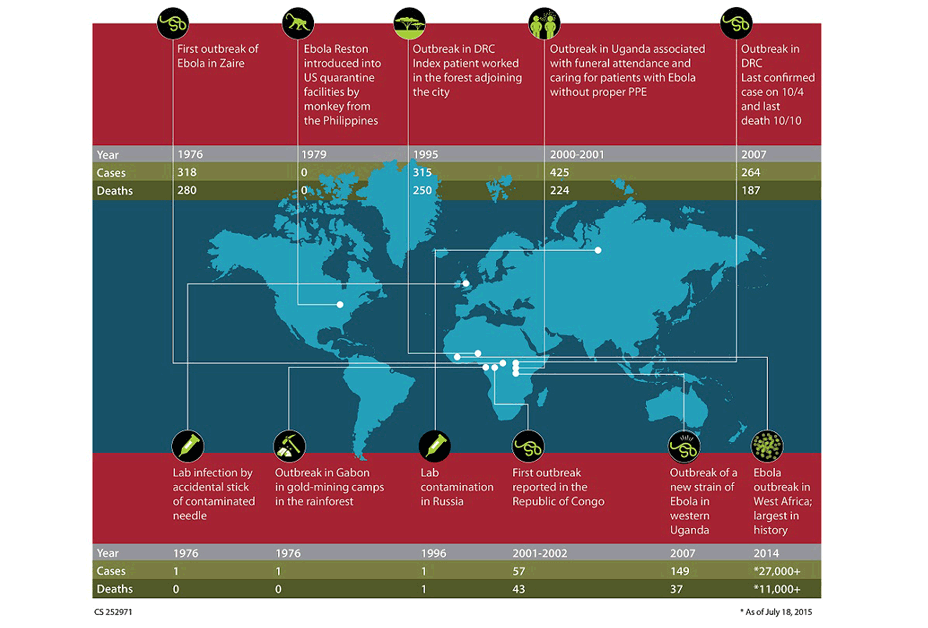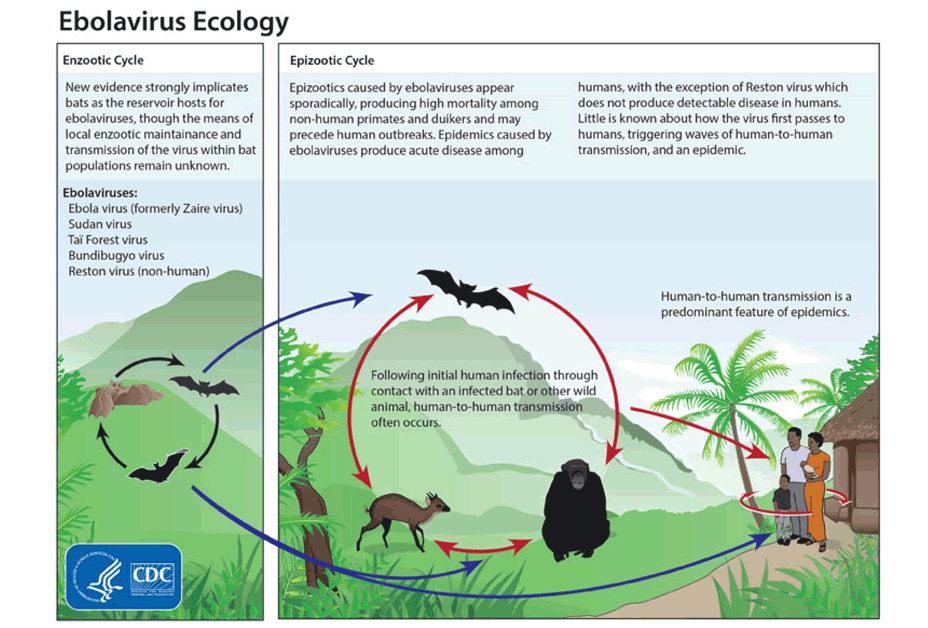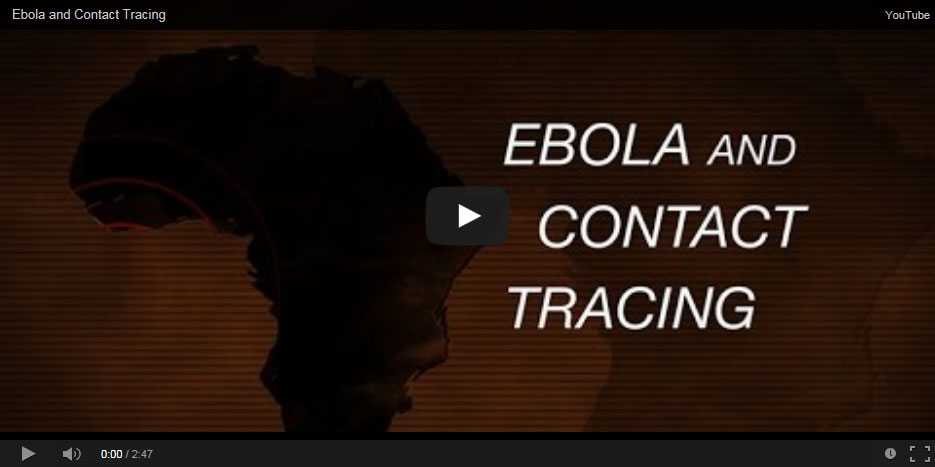Ebola
[ē-ˈbō-lə]

Ebola is a rare and deadly disease that was first discovered in 1976 near the Ebola River. Since then, outbreaks have appeared sporadically in several African countries. Scientists believe that Ebola outbreaks start when a human becomes infected through contact with an infected animal, such as a fruit bat or primate (monkeys and apes). The disease can then spread from person-to-person through contact with infected blood or body fluids. Healthcare workers and family and friends in close contact with Ebola patients are at the highest risk of getting Ebola because they may come in contact with infected body fluids.
Quiz
Key Facts
- Ebola is not a respiratory disease so it is not transmitted through the air.
- Signs and symptoms of Ebola include fever, severe headache, muscle pain, weakness, fatigue, vomiting, diarrhea, stomach pain, and unexplained bleeding.
- Ebola is spread through direct contact with blood and body fluids (through broken skin or mucous membranes) with blood and body fluids (like urine, feces, saliva, vomit, sweat, and semen) of a person who is sick with or died of Ebola.
- The incubation period for Ebola, from exposure to when signs or symptoms appear, is 2 to 21 days, but the average is 8 to 10 days.
Media
Prevention Tips
-
Visit CDC’s Travelers’ Health Website for travel advice and country-specific travel information.
-
Avoid nonessential travel to Guinea and Sierra Leone.
-
Practice careful hygiene. Wash your hands with soap and water or an alcohol-based hand sanitizer.
-
Avoid contact with other people’s blood and body fluids.
-
Do not handle items that may have come in contact with an infected person’s blood or body fluids (clothes, bedding, needles).
-
Avoid funeral or burial rituals that require handling the body of someone who has died from Ebola.
-
Avoid contact with bats, monkeys, and apes, or the raw meat from these animals.
-
Avoid facilities where Ebola patients are being treated.
-
If you have traveled to an area with an Ebola outbreak, seek medical care immediately if you develop fever, headache, diarrhea, vomiting, stomach pain, or unexplained bleeding.
- Page last reviewed: March 3, 2016
- Page last updated: March 3, 2016
- Content source:


 ShareCompartir
ShareCompartir




